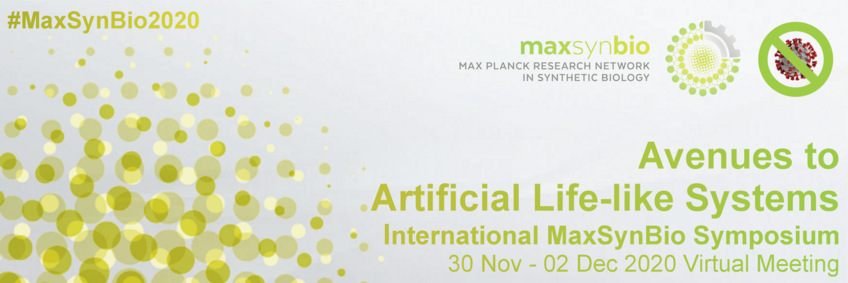
#44 - Physiological artificial cells as smart drug-delivery agents
Omer Duhan Toparlak (University of Trento)
Tuesday, 01 Dec 21:15 - 22:00 CET
Access to the BigBlueButton rooom for this Mini Talk via the lists for Monday and Tuesday.
Please make yourself familiar with BigBlueButton before you join the Mini Talk - read the instructions.
Abstract
Title: Physiological artificial cells as smart drug-delivery agents
Author(s): Ö. Duhan Toparlaka, Luciano Contia, Marie-Laure Baudeta and Sheref S. Mansyb
Affiliation(s): aUniversity of Trento, Trento, Italy; bUniversity of Alberta, Edmonton, Canada
Abstract: Artificial cells that integrate with natural living cells may provide for opportunities to engineer advanced drug delivery systems [1]. Despite the potential and future implications of this technology, artificial cells that interact with eukaryotic cells under physiological conditions have not been demonstrated thus far. Here, we report the construction of artificial cells that chemically communicate with mammalian cells under physiological conditions [2]. The artificial cells respond to the presence of a small molecule in the environment by synthesizing and releasing a potent protein signal, brain-derived neurotrophic factor. Genetically controlled artificial cells communicate with engineered human embryonic kidney cells and murine neural stem cells. The data suggest that artificial cells are a versatile chassis for the in situ synthesis and on-demand release of chemical signals that elicit desired phenotypic changes of eukaryotic cells, including neuronal differentiation. In the future, artificial cells could be engineered to go beyond the capabilities of typical smart drug delivery vehicles by synthesizing and delivering specific therapeutic molecules tailored to distinct physiological conditions. Since the artificial cells work well with eukaryotic cells as well as bacterial cells; eukaryotic cells can be of plant origin, or artificial cells can further intervene with bacterial cells within the physiology of the host organism.